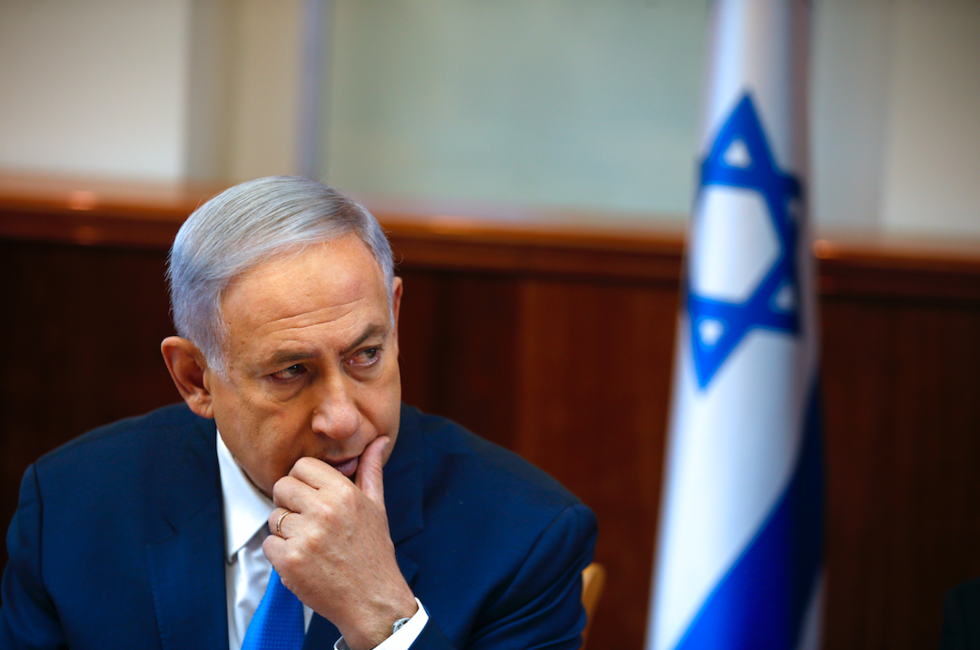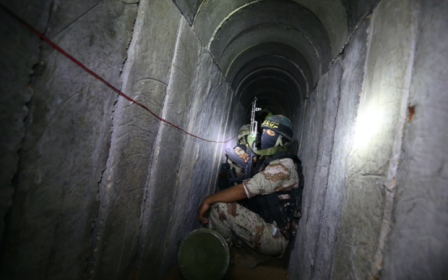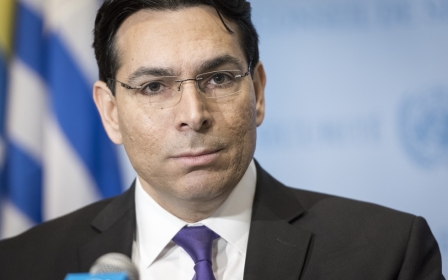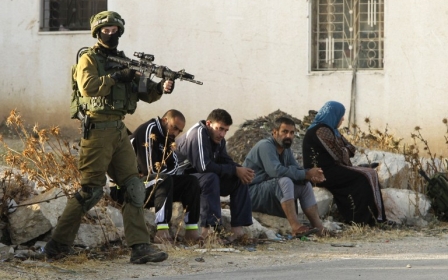Israel approves controversial counter-terrorism bill

Israel’s parliament approved a controversial counterterrorism bill on Wednesday that will give security services greater powers to detain and prosecute people in Israel.
The bill, which only applies in Israel and not in the West Bank, will make it possible for “passive members” of groups classified as terrorist organisations to be indicted.
The defence minister will also be able to confiscate property believed to belong to outlawed groups, without seeking judicial approval.
The law was supported by all political parties except the leftist Meretz party and the Joint List, made up mainly of MPs representing Palestinian citizens of Israel.
The measure is “draconian, expands the authority of the security forces and occupation authorities, in order to undermine the right to oppose the crimes of the occupation,” Joint List MPs Ahmad Tibi and Osama Saadi said in a joint statement.
“The law does not define what terror is and represents a stain on the State of Israel’s horrifying law books. Indeed this is a dark day for the Knesset.”
The law sets out specific sentences for anyone convicted of links with groups classified as terrorist organisations in Israel.
Leaders will get 25 years in jail, or a life sentence if their group has committed a deadly attack. Being convicted of membership in an outlawed group will be punishable by five years in jail, while failing to report a possible attack will carry a sentence of three years.
A large number of Palestinian groups, including Hamas and Islamic Jihad, are classified as terrorist organisations in Israel, as is the leftist Popular Front for the Liberation of Palestine (PFLP) and, most controversially, the Palestinian Liberation Organisation (PLO).
Joint List chairman Aymah Odeh said that the law was so broad that Israel itself could be considered to be breaking it, given that Israel carries out security cooperation with the Palestinian Authority and members of the PLO, Haaretz reported.
Senior Fatah figure banned
The bill comes exactly a week after four Israelis were killed and dozens of others wounded when two Palestinian attackers from the West Bank opened fire on a cafe and busy market area in Tel Aviv.
After the attack, Israel’s new far-right Defence Minister Avigdor Lieberman enacted a sweeping crackdown, sending military reinforcements to the West Bank and cancelling entry permits for more than 80,000 Palestinians who were planning to visit Israel or East Jerusalem during the holy month of Ramadan.
Earlier on Wednesday, Lieberman revoked the travel permit of Mohammed al-Madani, a senior Fatah official who is seen as being close to Palestinian President Mahmoud Abbas and also chairs the Committee for Interaction With Israeli Society.
According to Lieberman, Madani has been banned for conducting “subversive activity within Israeli society that included an attempt to establish political parties”.
“Madani tried to work with Israeli Bedouin and with Jews,” which is not acceptable for a foreign party, Lieberman said, while accusing Madani of trying to foster ties with Mizrahi Jews, who traditionally hail from the Middle East.
Madani’s office slammed the ban as “racist” and said the reaction showed how far Israel was from making “any attempt to reach a fair and comprehensive peace in the region".
Netanyahu’s defence ‘games’
While Israel’s opposition Zionist Union has come out in support of Wednesday’s bill, its leader Isaac Herzog has locked horns with Prime Minister Benjamin Netanyahu, accusing him of “playing games” during a 10-month-long negotiation with the US about increasing military aid.
"We're losing a critical portion of the defence aid because of Netanyahu's egotistical games," Herzog said in a statement posted on his Facebook page on Wednesday.
"Should Israel be left without an aerial defence system in the next war, we can set up the commission of inquiry into how Netanyahu makes decisions related to Israel's security."
At present Israel receives $3bn in military aid from the US yearly, but the current deal runs out in 2018, with the two countries wrangling over a follow-up deal since last year.
Herzog’s statement comes after US President Barack Obama announced his opposition to Israel receiving $455m in additional military aid in next year’s budget and in a six-page letter to Congress that said the White House might veto the move.
Netanyahu lashed out at the criticism, calling it “inappropriate”, and insisting that Israel would not see military aid reduced, but that it was merely negotiating the size of the increase.
This article is available in French on Middle East Eye French edition.
New MEE newsletter: Jerusalem Dispatch
Sign up to get the latest insights and analysis on Israel-Palestine, alongside Turkey Unpacked and other MEE newsletters
Middle East Eye delivers independent and unrivalled coverage and analysis of the Middle East, North Africa and beyond. To learn more about republishing this content and the associated fees, please fill out this form. More about MEE can be found here.




